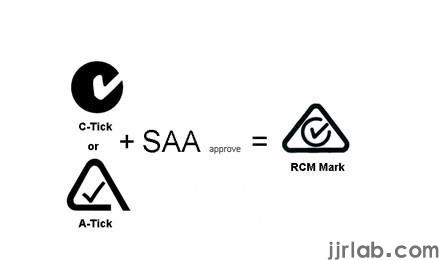
What is Australia RCM Certification?
Australia rcm certification
RCM (RegULatory Compliance Mark) is a registration symbol indicating that the supplier declares that the product complies with the electrical safety laws/regulations of various states in Australia as well as New Zealand, and also meets the electromagnetic compatibility requirements specified in the Australian Radiocommunications Act and the New Zealand Radiocommunications Act. Only products that comply with both electrical safety regulations and EMC regulations can use the rcm mark.

The owner of the RCM mark is the federal government, and both the electrical safety regulatory authority and the EMC regulatory authority accept the RCM mark as a supplier's declaration of conformity. Once approved to use the RCM mark in any state, the regulatory authorities of other states can also accept it, thus achieving approval for interstate circulation in one go.
Suppliers need to apply for and register before they can use the RCM mark. Once registeRED, suppliers can use the RCM mark on all products that meet applicable legal and regulatory requirements. If it is found that products using the RCM mark do not meet the legal/regulatory requirements for use, suppliers will be penalized according to the provisions of Australian trademark law.
Basic Information about Australia RCM
- On March 1, 2016, C-Tick, A-Tick, and RCM were integrated into a single regulatory compliance mark, RCM.
- Products must comply with electrical safety and electromagnetic compatibility.
- Mandatory certification: Yes.
- Factory inspection: No.
- Local representative: Required (certificate application must be made locally in Australia).
- Agents need to log in to the national database.
- Certificate validity period: 2 years, 3 years, 5 years.
Scope of Australia RCM Certification Services
Australia categorizes electrical products into three levels of risk: Level 1 low-risk category; Level 2 medium-risk category; Level 3 high-risk category, with a list of 56 products.
- Level 1 certification requirements: Refers to direct current power supply products (apply for RCM certification directly by providing emc reports) (i.e., C-TICK).
- Level 2 certification requirements: Refers to alternating current power supply products (apply for RCM certification by providing EMC reports + safety compliance reports) (i.e., C-TICK).
- Level 3 certification requirements: Refer to the list below (apply for RCM certification + EESS registration by providing EMC reports + safety compliance reports + saa certificate).
Any electrical product with a voltage range between 50V and 1000V AC; 120V and 1500V DC must comply with Australian electrical safety laws.
Since March 1, 2013, products must be registered with the Australian national database EESS and have the RCM mark printed in order to be sold on the market.
As of January 1, 2016, the three-year transition period ended, and the implementation of the RCM mark became mandatory. Products not registered and labeled with the RCM mark will not be allowed to be sold on the market.
Before this, due to the inability to verify the authenticity of certificates online, the market was chaotic. To regulate the market, the government established the EESS national database. Once a product is successfully registered with EESS, buyers from around the world can query product-related information on the government's official website, attracting more Australian buyers and helping you successfully expand into international markets such as Australia and New Zealand.
As a laboratory recognized by the Australian and New Zealand governments, JJRLAB can provide testing, RCM certification, and registration services for a wide range of products, including lamps, small appliances, exported to the Australian and New Zealand markets. The testing reports are directly recognized by the Australian government, which can help customers obtain certification more conveniently and register through the national database, guide customers to correctly apply relevant marks, and provide comprehensive technical services to export enterprises for developing the Australian market.
Australia RCM Certification Process
1. Issue test reports according to standards within the scope recognized by CNAS.
2. Submit the Australia RCM certification application form.
3. Submit the test reports to the Australian certification authority for document review.
4. The Australian authority reviews the test reports.
5. Upon approval by Australia, issue the rcm certificate.
Email:hello@jjrlab.com
Write your message here and send it to us
 European Toy Safety Standard EN 71-20:2025
European Toy Safety Standard EN 71-20:2025
 EN 18031 Certification for Connected Devices on Am
EN 18031 Certification for Connected Devices on Am
 Compliance Guide for Portable Batteries on Amazon
Compliance Guide for Portable Batteries on Amazon
 2026 EU SVHC Candidate List (253 Substances)
2026 EU SVHC Candidate List (253 Substances)
 LFGB Certification Cost and Timeline Guide
LFGB Certification Cost and Timeline Guide
 Bluetooth FCC Test Report
Bluetooth FCC Test Report
 Is FCC Testing Required?
Is FCC Testing Required?
 Where to Find FCC Test Reports
Where to Find FCC Test Reports
Leave us a message
24-hour online customer service at any time to respond, so that you worry!




